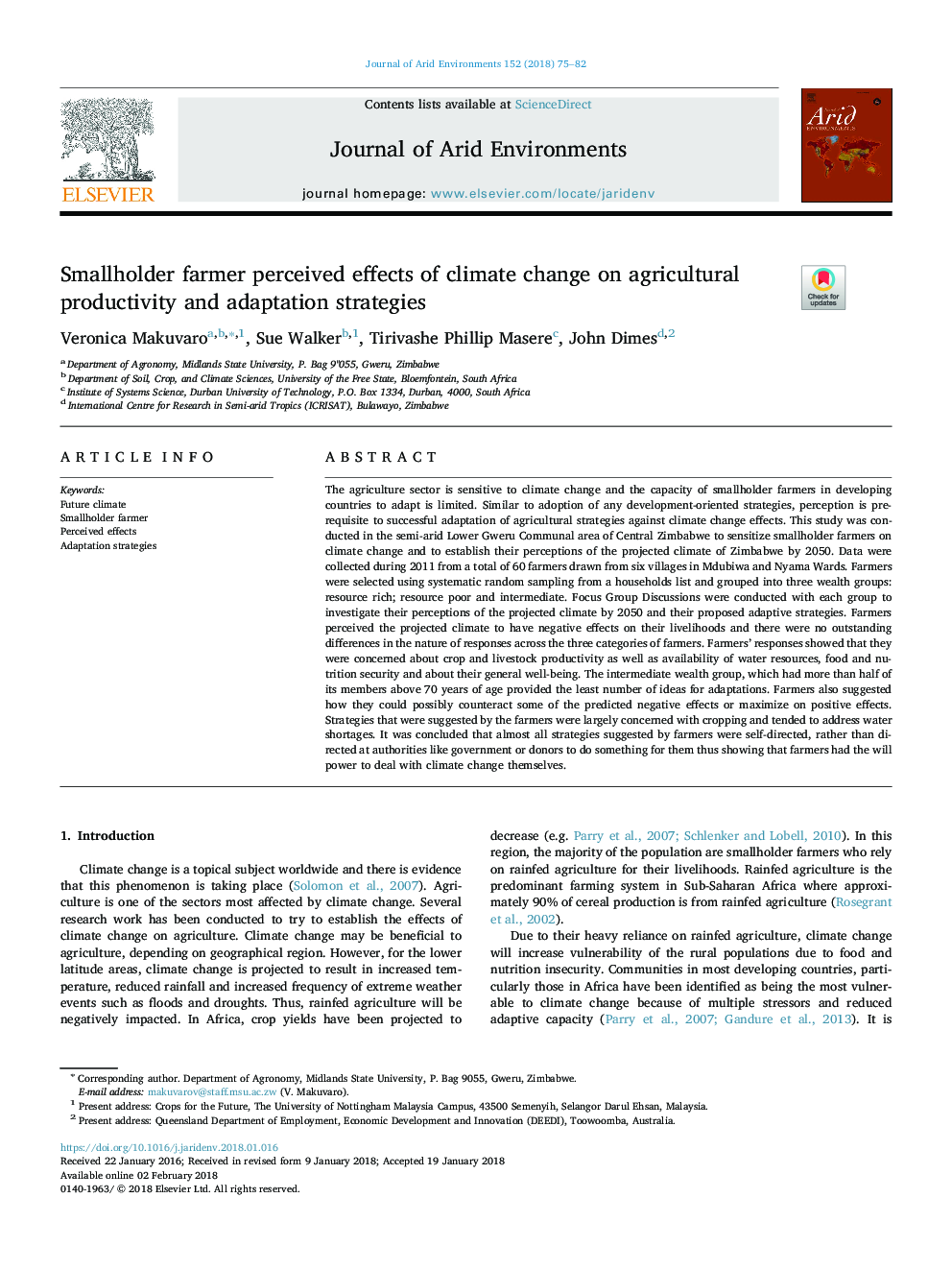| کد مقاله | کد نشریه | سال انتشار | مقاله انگلیسی | نسخه تمام متن |
|---|---|---|---|---|
| 8848535 | 1618207 | 2018 | 8 صفحه PDF | دانلود رایگان |
عنوان انگلیسی مقاله ISI
Smallholder farmer perceived effects of climate change on agricultural productivity and adaptation strategies
ترجمه فارسی عنوان
مزرعه متوجه اثرات تغییرات آب و هوایی بر بهره وری کشاورزی و استراتژی های انطباق می شود
دانلود مقاله + سفارش ترجمه
دانلود مقاله ISI انگلیسی
رایگان برای ایرانیان
کلمات کلیدی
آب و هوای آینده، کشاورز کوچک اثرات درک شده، استراتژی های سازگاری،
موضوعات مرتبط
مهندسی و علوم پایه
علوم زمین و سیارات
فرآیندهای سطح زمین
چکیده انگلیسی
The agriculture sector is sensitive to climate change and the capacity of smallholder farmers in developing countries to adapt is limited. Similar to adoption of any development-oriented strategies, perception is pre-requisite to successful adaptation of agricultural strategies against climate change effects. This study was conducted in the semi-arid Lower Gweru Communal area of Central Zimbabwe to sensitize smallholder farmers on climate change and to establish their perceptions of the projected climate of Zimbabwe by 2050. Data were collected during 2011 from a total of 60 farmers drawn from six villages in Mdubiwa and Nyama Wards. Farmers were selected using systematic random sampling from a households list and grouped into three wealth groups: resource rich; resource poor and intermediate. Focus Group Discussions were conducted with each group to investigate their perceptions of the projected climate by 2050 and their proposed adaptive strategies. Farmers perceived the projected climate to have negative effects on their livelihoods and there were no outstanding differences in the nature of responses across the three categories of farmers. Farmers' responses showed that they were concerned about crop and livestock productivity as well as availability of water resources, food and nutrition security and about their general well-being. The intermediate wealth group, which had more than half of its members above 70 years of age provided the least number of ideas for adaptations. Farmers also suggested how they could possibly counteract some of the predicted negative effects or maximize on positive effects. Strategies that were suggested by the farmers were largely concerned with cropping and tended to address water shortages. It was concluded that almost all strategies suggested by farmers were self-directed, rather than directed at authorities like government or donors to do something for them thus showing that farmers had the will power to deal with climate change themselves.
ناشر
Database: Elsevier - ScienceDirect (ساینس دایرکت)
Journal: Journal of Arid Environments - Volume 152, May 2018, Pages 75-82
Journal: Journal of Arid Environments - Volume 152, May 2018, Pages 75-82
نویسندگان
Veronica Makuvaro, Sue Walker, Tirivashe Phillip Masere, John Dimes,
